Water Heater Repair Near Me – Georgetown, TX
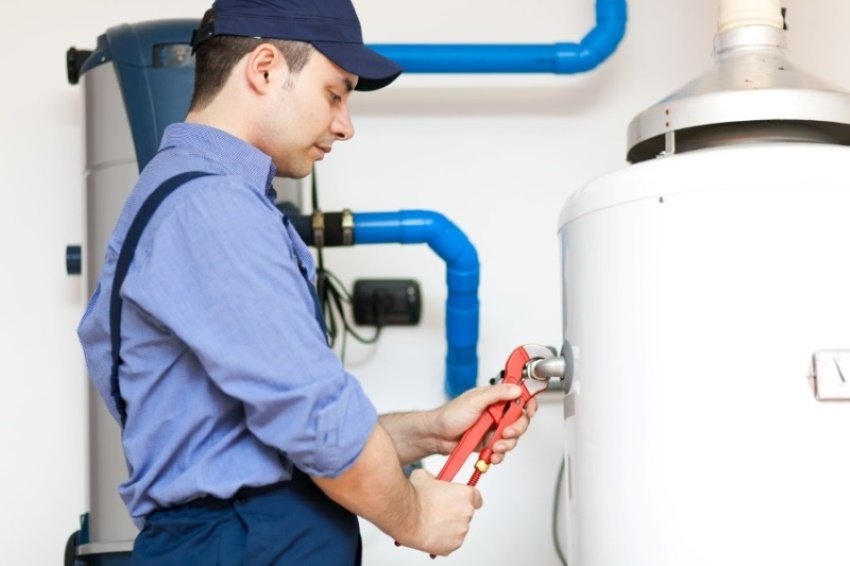
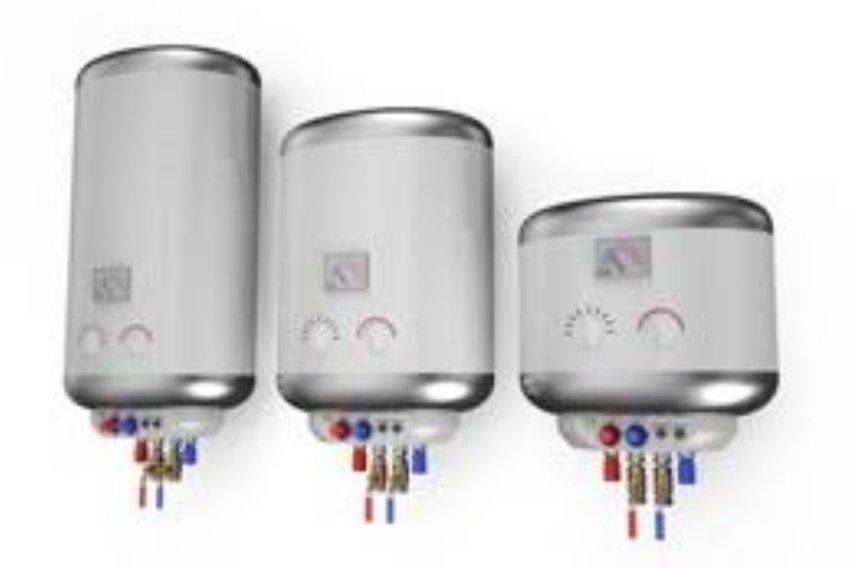
CALL US NOW (512) 316-0246
Water Heater Maintenance Plans: Proactive Solutions to Prevent Costly Repairs
Water heater maintenance plans offer homeowners a proactive approach to ensuring the longevity, efficiency, and reliability of their water heating systems. These comprehensive service packages provide regular inspections, preventive maintenance tasks, and priority repair services, helping homeowners avoid costly repairs and unexpected breakdowns. Here’s how water heater maintenance plans serve as proactive solutions to prevent costly repairs:
1. Routine Inspections and Tune-Ups:
– Maintenance plans include scheduled inspections by qualified technicians who assess the condition of the water heater, identify potential issues, and perform preventive maintenance tasks.
– Technicians inspect key components such as the heating element, thermostat, pressure relief valve, anode rod, and electrical connections to ensure optimal performance and safety.
2. Flush and Drain Procedures:
– Regular flushing and draining of the water heater tank are essential to remove sediment buildup, mineral deposits, and other debris that can impair efficiency and lead to corrosion.
– Maintenance plans include professional flushing procedures to maintain water quality, improve heating efficiency, and extend the lifespan of the water heater.
3. Anode Rod Replacement:
– The sacrificial anode rod plays a crucial role in preventing corrosion within the water heater tank by attracting corrosive elements away from the tank lining.
– Maintenance plans include periodic inspection and replacement of the anode rod to safeguard against tank corrosion and prolong the life of the water heater.
4. Pressure Relief Valve Testing:
– The pressure relief valve is a critical safety component that prevents the water heater tank from overpressurizing and potentially exploding.
– Maintenance plans include testing and verifying the proper operation of the pressure relief valve to ensure it functions effectively in case of a pressure buildup.
5. Temperature and Pressure Adjustments:
– Technicians calibrate the temperature and pressure settings of the water heater to ensure they align with safety standards and meet the homeowner’s preferences.
– Adjustments are made as needed during maintenance visits to optimize performance, prevent overheating, and reduce energy consumption.
6. Leak Detection and Repair:
– Maintenance plans include thorough inspections for signs of leaks, corrosion, or water damage around the water heater and its connections.
– Plumbing companies near me identify and repair minor leaks or potential weak points before they escalate into major issues, minimizing the risk of water damage and costly repairs.
7. Energy Efficiency Optimization:
– Regular maintenance helps maximize the energy efficiency of the water heater, reducing energy consumption and lowering utility bills.
– Technicians clean heating elements, check insulation, and assess system performance to identify opportunities for energy-saving improvements.
8. Priority Repair Services:
– In the event of a malfunction or breakdown, homeowners with maintenance plans receive priority scheduling for repair services.
– Technicians respond promptly to repair requests, minimizing downtime and inconvenience for the homeowner.
9. Educational Resources and Tips:
– Maintenance plans may include educational resources, such as maintenance guides, tips, and recommendations, to help homeowners understand their water heater systems and maintain them effectively between service visits.
– Homeowners gain insights into best practices for water heater care, troubleshooting common issues, and optimizing performance.
10. Cost Savings and Peace of Mind:
– By investing in a water heater maintenance plan, homeowners enjoy peace of mind knowing that their water heating system is professionally maintained and protected against costly repairs.
– The predictable costs of the maintenance plan are often more affordable than the expenses associated with unexpected repairs or premature replacement, resulting in long-term cost savings and financial stability.
In summary, water heater maintenance plans offer homeowners a proactive, cost-effective solution to prevent costly repairs, extend the lifespan of their water heating systems, and maintain optimal performance and efficiency for years to come. By partnering with qualified technicians and prioritizing preventive maintenance tasks, homeowners can enjoy reliable hot water and peace of mind knowing that their investment is well-protected.
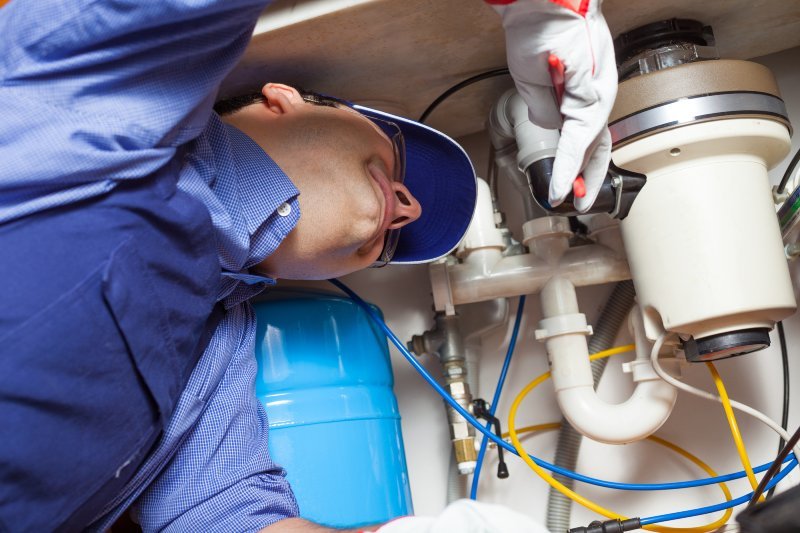
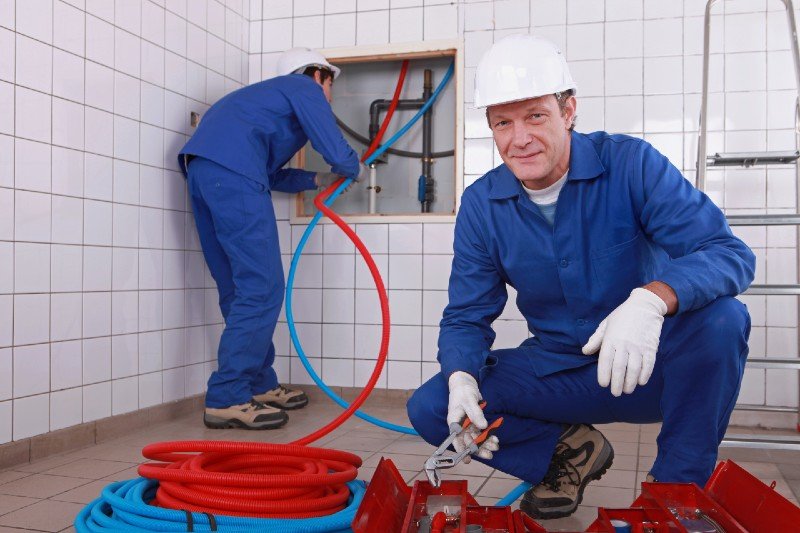
Customer Education Workshops on Water Heater Care and Maintenance
Customer education workshops on water heater care and maintenance provide homeowners with valuable knowledge and practical skills to effectively manage and prolong the lifespan of their water heating systems. These workshops, hosted by experienced plumbers near me or water heater specialists, cover a range of topics to empower participants with the confidence and know-how to address common issues and ensure optimal performance. Here’s how these workshops benefit homeowners:
1. Understanding Water Heater Basics:
– Workshops begin with an overview of water heater types, components, and operation principles, helping homeowners gain a foundational understanding of how their water heating systems work.
2. Identifying Signs of Trouble:
– Participants learn to recognize common signs of water heater problems, such as unusual noises, fluctuations in water temperature, leaks, or reduced efficiency.
– By understanding these warning signs, homeowners can take proactive measures to address issues before they escalate into costly repairs or replacements.
3. Preventive Maintenance Techniques:
– Workshops emphasize the importance of preventive maintenance in prolonging the lifespan and efficiency of water heaters.
– Participants receive guidance on performing routine maintenance tasks, such as flushing the tank, inspecting the anode rod, and testing the pressure relief valve.
4. Safety Precautions and Best Practices:
– Safety is paramount when dealing with water heater maintenance. Workshops educate homeowners on proper safety precautions, including shutting off power sources, relieving pressure, and handling hot water safely.
– Participants learn best practices for maintaining a safe and functional water heating system, minimizing the risk of accidents or injuries.
5. Energy-Saving Tips and Efficiency Strategies:
– Participants discover practical strategies for improving the energy efficiency of their water heaters, reducing utility bills, and minimizing environmental impact.
– Tips may include adjusting thermostat settings, insulating pipes, utilizing timer controls, and investing in energy-efficient upgrades.
6. DIY Repair and Troubleshooting Techniques:
– Workshops equip homeowners with basic DIY repair skills and troubleshooting techniques to address minor water heater issues independently.
– Participants learn how to relight pilot lights, replace heating elements, flush sediment from the tank, and identify and resolve common problems.
7. Water Quality Management:
– Participants gain insights into managing water quality to preserve the integrity of their water heaters and optimize performance.
– Topics may include water softening techniques, filtration options, and strategies for mitigating hard water issues.
8. Understanding Warranty Coverage:
– Workshops clarify the terms and conditions of water heater warranties, helping homeowners understand their coverage and rights in the event of repairs or replacements.
– Participants learn how to navigate warranty claims and maximize the benefits of their warranty agreements.
9. Emergency Response Planning:
– Homeowners receive guidance on developing emergency response plans for water heater-related crises, such as leaks, malfunctions, or breakdowns.
– Participants learn how to shut off water and power sources, locate emergency contacts, and take immediate action to minimize damage and ensure safety.
10. Q&A Sessions and Expert Advice:
– Workshops include interactive Q&A sessions where participants can seek advice, clarify doubts, and receive personalized recommendations from experienced professionals.
– Homeowners benefit from expert insights tailored to their specific concerns and circumstances, enhancing their confidence in managing water heater care and maintenance effectively.
By attending customer education workshops on water heater care and maintenance, homeowners empower themselves with the knowledge and skills needed to optimize the performance, safety, and longevity of their water heating systems. These workshops foster a culture of proactive maintenance, saving homeowners time, money, and hassle in the long run while ensuring reliable hot water for years to come.
Emergency Response Planning for Water Heater Repair: Ensuring Rapid Assistance During Critical Situations
Emergency response planning is crucial for homeowners facing unexpected water heater issues that require immediate attention. By having a well-defined plan in place, homeowners can minimize damage, ensure safety, and expedite the repair process. Here’s how to develop an effective emergency response plan for water heater replacement:
1. Identification of Emergency Situations:
– Educate household members about the types of water heater emergencies that may occur, such as leaks, ruptures, or malfunctions leading to no hot water.
– Encourage vigilant observation of warning signs like unusual noises, fluctuations in water temperature, or visible leaks to detect potential issues early.
2. Emergency Contact Information:
– Compile a list of emergency contact numbers for local plumbing services near me or water heater repair services that offer 24/7 assistance.
– Ensure all household members have access to this list and know how to reach out for help in case of an emergency.
3. Shut-Off Procedures:
– Teach household members how to shut off the water supply to the water heater and the corresponding power source (gas or electricity) in the event of a leak, rupture, or malfunction.
– Clearly mark shut-off valves and circuit breakers and ensure everyone knows their location and how to operate them safely.
4. Containment and Damage Mitigation:
– Provide guidance on containment measures to minimize water damage while waiting for professional assistance.
– Encourage the use of towels, buckets, or containers to collect leaking water and prevent it from spreading to other areas of the home.
5. Evacuation Protocols:
– Establish evacuation protocols for situations where water heater issues pose an immediate threat to safety, such as gas leaks or electrical hazards.
– Designate assembly points outside the home and ensure all household members know where to gather in case of evacuation.
6. Communication and Coordination:
– Designate a point of contact responsible for initiating emergency response procedures and communicating with repair professionals.
– Ensure all household members know whom to contact in case of an emergency and how to convey relevant information to repair technicians.
7. Access to Essential Supplies:
– Maintain a supply kit stocked with essential items such as towels, buckets, wrenches, and flashlights for use during emergency situations.
– Keep the kit easily accessible and ensure all household members know its location.
8. Backup Heating Solutions:
– Consider alternative heating options, such as portable space heaters or electric kettles, to provide temporary hot water if the water heater is out of service for an extended period.
– Educate household members on how to use these backup heating solutions safely and effectively.
9. Regular Maintenance and Inspections:
– Emphasize the importance of regular water heater maintenance and inspections to identify potential issues early and prevent emergencies from occurring.
– Schedule routine inspections with qualified plumbers close to me or water heater specialists to ensure the system is in good working condition.
10. Review and Practice:
– Conduct periodic reviews of the emergency response plan with household members to ensure everyone remains familiar with procedures and protocols.
– Practice shut-off procedures and evacuation drills regularly to reinforce preparedness and ensure swift, coordinated responses in the event of an emergency.
By implementing an emergency response plan for water heater repair, homeowners can mitigate risks, protect property, and ensure rapid assistance during critical situations. Regular review, practice, and maintenance are essential for maintaining readiness and safeguarding against potential emergencies.
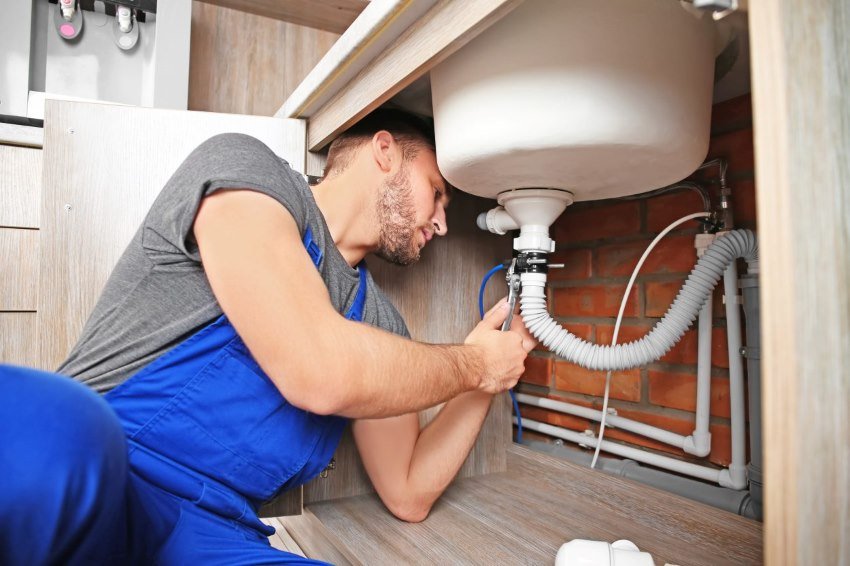

Smart Technology Integration in Water Heater Repair: Enhancing Control and Monitoring
As technology continues to advance, smart solutions are revolutionizing the way we interact with and manage household appliances. Here’s a closer look at how smart technology integration is transforming water heater repair, enhancing control, and monitoring for homeowners:
1. Smart Thermostats and Controls:
– Smart thermostats allow homeowners to remotely control water temperature, schedule heating cycles, and adjust settings using smartphone apps or voice commands.
– During repair or maintenance, plumbers can install or troubleshoot smart thermostats to ensure optimal performance and compatibility with the water heating system.
2. Leak Detection Sensors:
– Smart leak detection sensors placed near the water heater can detect leaks or abnormal water flow patterns in real-time.
– Integration with smartphone apps provides instant alerts to homeowners and plumbers, enabling quick intervention to prevent water damage and minimize repair costs.
3. Predictive Maintenance Algorithms:
– Advanced algorithms analyze usage patterns, water quality, and system performance data to predict potential issues before they occur.
– Plumbers can utilize predictive maintenance insights during repairs to address underlying issues and prevent future breakdowns, enhancing the longevity of the water heater.
4. Remote Diagnostics and Troubleshooting:
– Smart technology enables remote diagnostics of water heater systems, allowing plumbers to identify problems without physical inspection.
– Through remote access to system data and error logs, plumbers can diagnose issues more efficiently, streamline repair processes, and reduce service downtime for homeowners.
5. Energy Usage Monitoring and Optimization:
– Smart water heaters provide real-time energy usage data, allowing homeowners to track consumption patterns and optimize energy efficiency.
– Plumbers can analyze energy usage data during repair visits to identify potential energy-saving opportunities, such as adjusting temperature settings or upgrading to more efficient components.
6. Integration with Home Automation Systems:
– Water heater systems can be integrated with home automation platforms, enabling seamless control and monitoring alongside other smart devices.
– Homeowners can create custom automation routines, such as adjusting water heater settings based on occupancy or time of day, to optimize comfort and efficiency.
7. Mobile App Interfaces for Remote Management:
– Dedicated mobile apps provide intuitive interfaces for homeowners to monitor water heater status, receive alerts, and access diagnostic information from anywhere.
– Plumbers can assist homeowners in setting up and configuring mobile app features during repair visits, ensuring seamless integration with the water heater system.
8. Usage Insights and Recommendations:
– Smart water heater systems analyze usage data to provide personalized insights and recommendations for optimizing performance and efficiency.
– Plumbers can leverage usage insights to educate homeowners on best practices for water heater operation, maintenance, and energy conservation during repair consultations.
9. Voice-Activated Controls and Integration with Virtual Assistants:
– Integration with voice-activated virtual assistants, such as Amazon Alexa or Google Assistant, enables hands-free control of water heater settings and functions.
– Plumbers can assist homeowners in setting up voice commands and configuring smart home routines to simplify water heater management and enhance user experience.
10. Data Security and Privacy Measures:
– Smart water heater systems prioritize data security and privacy, implementing encryption protocols and secure authentication mechanisms to protect sensitive information.
– Plumbers can educate homeowners on data privacy practices and assist in configuring security settings to safeguard personal data and ensure peace of mind.
By integrating smart technology into water heater repair services, plumbers can empower homeowners with enhanced control, monitoring, and efficiency optimization capabilities, revolutionizing the way water heaters are managed and maintained for years to come.
Reach Us
CMK Plumber Georgetown
Hours of Operation
Mon Open 24 hours
Tue Open 24 hours
Wed Open 24 hours
Thu Open 24 hours
Fri Open 24 hours
Sat Open 24 hours
Sun Open 24 hours
